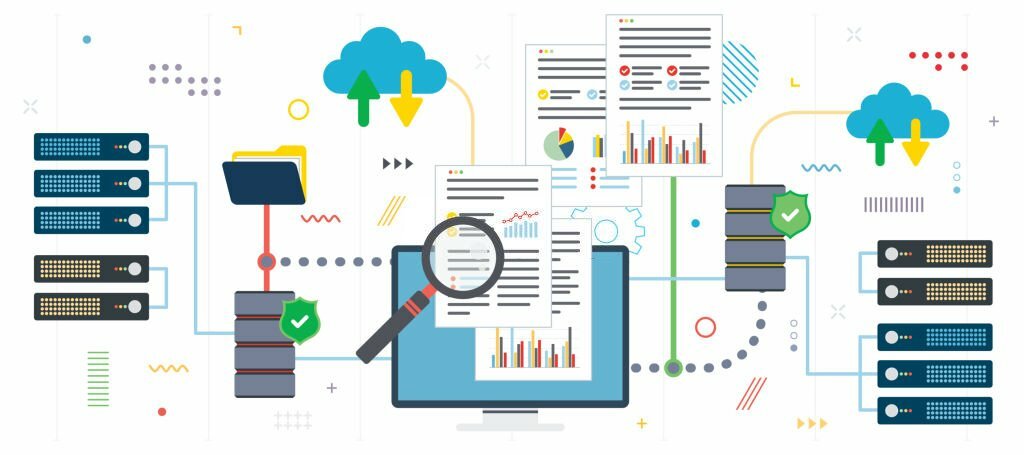Data is often referred to as the new oil in the digital age and for a good reason. The vast amount of information on the internet can be a treasure trove of insights and opportunities. However, accessing and extracting this data can be daunting, mainly when scattered across numerous websites. This is where web scraping comes into play, serving as the digital prospector’s pickaxe in the information age.
In this article, we’ll explore the definition of web scraping, what web scraping software and how it is used to extract valuable data from websites, providing individuals and businesses with the means to tap into this valuable resource.
Definition of Web Scraping
Web scraping is a data extraction technique that involves programmatically retrieving and parsing HTML content from websites to extract relevant information, facilitating the automated collection of data for various purposes such as research, analysis, or data aggregation.
What Is Web Data Extraction?
To better understand what web scraping is, it is essential to understand what web data extraction is first. In simple words, web data extraction is automatically extracting information from websites. But, it involves fetching web pages, parsing their content, and saving specific data into a structured format, such as a spreadsheet or database. This process is carried out by automated web scraping software tools called web scrapers.
Importance of Web Scraping
Web scraping serves diverse users, ranging from businesses seeking competitive intelligence and market research to e-commerce platforms monitoring prices, researchers and academics gathering data for studies, financial institutions analyzing market trends, government agencies for policy analysis, and media organizations aggregating content. In a data-driven world, web scraping is essential for automating data collection, ensuring real-time updates, and providing a competitive edge, making it a valuable tool for industries and individuals needing timely, comprehensive, and accessible information from the vast landscape of the internet.
How Web Scraping Works?
Sending HTTP Requests
Web scraping begins with sending an HTTP request to the target website’s server. This request is typically made using a URL, and it specifies the web page to be retrieved.
Fetching Web Page
The server responds to the request by sending back the requested web page in the form of HTML code. This HTML code contains the content and structure of the web page.
Parsing HTML
The web scraper parses the HTML code to identify the specific elements and data that need to be extracted. This involves using regular expressions, CSS selectors, or XPath techniques to locate the desired information.
Extracting Data
Once the scraper identifies the relevant data, it extracts it from the HTML code. This data can include text, numbers, images, and more.
Storing Data
The extracted data is then stored in a structured format, such as a CSV file, Excel spreadsheet, or database. This makes it easier to analyze and use for various purposes.

Common Uses of Web Scraping
Web scraping has a wide range of applications across various industries and domains. Here are some everyday use cases for web scraping:
- Market Research: Companies use web scraping to gather data on competitor pricing, product reviews, and customer sentiment. This information helps them make informed decisions and stay competitive in the market.
- Lead Generation: To generate leads and build prospect lists, sales and marketing professionals use web scraping to collect contact information from websites, such as email addresses and phone numbers.
- News and Content Aggregation: News websites and content aggregators use web scraping to automatically gather news articles, blog posts, and other content from different sources, providing users with a centralized platform for information.
- E-commerce and Price Comparison: Online retailers use web scraping to track and compare product prices and availability across multiple websites. This allows them to adjust their pricing strategies in real time.
- Weather Data: Meteorologists and researchers use web scraping to gather weather data from various sources to improve weather forecasting models.
- Property and Real Estate Scraping: In real estate scraping, real estate agents and property investors use web scraping to collect information about property listings, including prices, locations, and property details.
- Academic Research: Researchers and scholars use web scraping to collect data for various research projects, including social science studies, sentiment analysis, and data analysis.
- Job Market Analysis: Job seekers and labour market analysts use web scraping to gather data on job postings, salaries, and job trends to make informed career decisions.
- Social Media Monitoring: Companies and organizations use web scraping to monitor social media platforms for mentions, trends, and user feedback to assess their online presence and reputation.
Summary
Web scraping is like a digital treasure hunt tool that helps people collect valuable information from the vast world of the internet. In simple terms, web scraping works by sending requests to websites, grabbing the web pages, figuring out the vital information on those pages, and then saving it in an organized way. This process is helpful for all kinds of things, like helping businesses monitor competitors, assisting researchers in gathering data or aiding online retailers in adjusting their prices based on what others are charging.
In a world where having the correct information at the right time is crucial, web scraping is like a super-smart assistant, making it easier for people and businesses to stay in the loop and make intelligent decisions. Whether you’re curious about market trends, looking for a job, or want to know what people are saying on social media, web scraping is the tool that helps you sift through the vast sea of internet data to find what you need.


